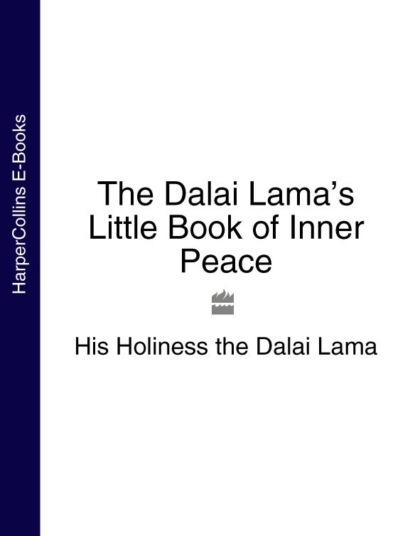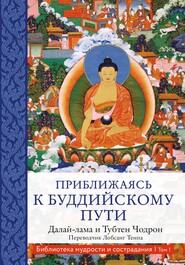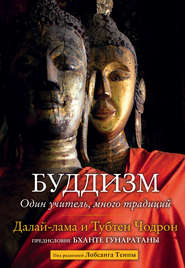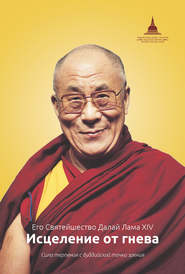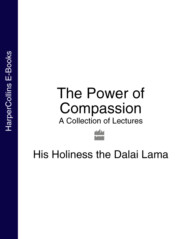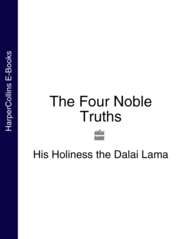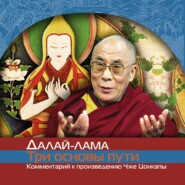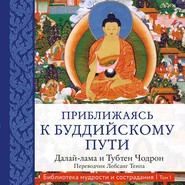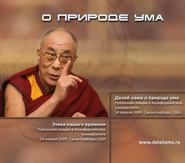По всем вопросам обращайтесь на: info@litportal.ru
(©) 2003-2024.
✖
The Dalai Lama’s Little Book of Inner Peace
Автор
Год написания книги
2018
Настройки чтения
Размер шрифта
Высота строк
Поля
The difficulty of being both spiritual and temporal leader in times of war
The situation was desperate. All my attempts to arrive at a peaceful solution had come to nothing. We were trapped in the vicious circle of authoritarian repression and popular anger. I grew discouraged. The institution of the Dalai Lamas, which had happily governed Tibet for centuries, had become untenable. In my dual role as spiritual and temporal leader, I was determined to oppose any violence on the part of the Tibetan people, but the Chinese did everything they could to undermine the people’s confidence in me. And yet, even if Tibetans no longer believed in their political leader, they should not lose faith in their spiritual guide. I could delegate, even abdicate, my political role, but the Dalai Lama can never give up his spiritual authority; indeed, I have never even dreamed of doing so.
It was then, at a time of deep despondency, that I received an invitation to India, to attend the Jayanti Buddha festival celebrating the 2,500th anniversary of the Buddha’s birth.
Journey to India
For every reason, political and religious, I very much wanted to go to India. After all, it is the birthplace of the founder of Buddhism, the very source of the wisdom brought to our mountains hundreds of years ago by Indian saints and seers. The religions and societies of Tibet and India had developed on different lines, but Tibet was still a child of Indian civilization. And from the secular point of view, a visit to India seemed to offer me the very opportunity I wanted to withdraw from my close contact and fruitless arguments with the Chinese, at least for a time. Not only that – I hoped it would also give me a chance to ask the advice of Mr Nehru, other democratic leaders, and followers of Mahatma Gandhi.
For a long time, we had had friendly contacts with the British government of India. In fact, that had been our only contact with the Western world. But since the transfer of power to the Indian government, political contact with India had faded away and I was sure that we must try to renew it and keep it strong, as a lifeline to the world of tolerance and freedom. I cannot emphasize enough how isolated Tibet felt politically. So I left Lhasa at the end of November 1956, looking forward to being able to move around freely without having to worry about the Chinese.
My very first visit on my first morning in New Delhi was to the Rajghat, the place of cremation of Mahatma Gandhi. I was deeply moved as I prayed there on the green lawns which slope down to the Jamuna River. I wished most fervently that I had had the privilege of meeting Gandhi in this world, and, at the same time, felt tremendous joy thinking of the amazing example of his life. I saw in him, and still see in him today, a consummate statesman who believed in altruism over and above all personal considerations. Like him, I am convinced that non-violence is the best political weapon.
On my first meeting with Pandit Nehru, I explained to him in detail how the Chinese had invaded our peaceful country and how I had tried dialogue with them once I realized that no other nation was ready to defend our right to independence. He began by listening very politely, but gradually his gaze became more and more vacant. Finally he said that he understood me perfectly, but was firmly convinced that nothing could be done for Tibet at present. Nevertheless, I confided in him about my idea of going into exile in India. Once again he gave me the brush off, and advised me to go back to my country and try to get on with the Chinese. I said that I had already done all I possibly could to do that, but the Chinese had betrayed my trust.
Before leaving Delhi, I had one last meeting with Nehru. Things had to be clear: India could in no way help Tibet. He entreated me to follow the advice of Chou En-lai and to go back to Lhasa without stopping in Kalimpong, a town in northern India where I had been invited by the Tibetan refugee community. However, as I insisted I wished to go there, he suddenly changed his mind and said, “India is a free country, after all. Nothing that you are doing is illegal.”
Meanwhile my two brothers, who had been contacting sympathetic Indian politicians, and my old Prime Minister tried to persuade me to stay in India. All three asked the Kashag to prevent me from returning. But I did not give ground. I was once more going to collaborate with the Chinese, on the advice of Nehru and with the promises of Chou En-lai in mind. But as I traveled back to Lhasa, I had a weary heart.
Lhasa reaches breaking point
The crisis towards which we were inevitably moving happened in the second half of 1958, when part of the alliance of guerrillas besieged a large garrison of the Chinese Liberation army in Tsethang. I sensed that if the population of Lhasa, which had doubled with the influx of refugees, became caught up in the conflict any hope of restoring peace would be gone. The powder keg was on the brink of exploding, yet nothing in particular was happening. I spent the long cold winter nights at my studies.
Doctor of Buddhist philosophy
I left the Norbulingka (the summer palace in Lhasa) at the beginning of 1959. When I arrived at the Jokhang Temple for the Monlam festival, at the end of which my final examination would be held, between 25,000 and 30,000 monks were waiting for me, intermingled with the enormous crowd of laypeople who had come from the furthest corners of Tibet. For one whole day, before an audience of several thousand people, and alongside other students like myself, I had to hold my own in logic, epistemology, and the philosophies and scriptures of the Buddhist Mahayana tradition. Many different scholars asked me questions to test my knowledge. It was a hard day, but the examiners unanimously agreed to bestow the title of Geshe on me, the term for a Doctor in Buddhist philosophy.
A thousand-year civilization exhibits its glory for the last time
On 5 March, I left the Jokhang in a magnificent procession to go back to the summer palace. My bodyguards, dressed in their gleaming uniforms, surrounded my palanquin, and behind me followed members of the Kashag and of the Lhasa aristocracy, all sumptuously dressed. They were followed by the most eminent abbots and lamas of the country, and finally by thousands upon thousands of Tibetans. A civilization over one thousand years old exhibited its glory for the very last time, along the four-mile road that separates the two buildings. Only the usual contingent of Chinese was missing, and that was hardly reassuring.
Invitation to a theatrical show
Just before I had left for the Jokhang, I had been pressured by the Chinese to attend a theatrical show, and without any detailed discussion I had accepted the date of 10 March. When I returned to Lhasa, we learned that the play was to take place in the Chinese army camp, less than two miles away from the summer palace. The very idea of the Dalai Lama going into it for any purpose was extraordinary. No one could help feeling that the Chinese invitation was suspicious, especially as I had to go into the Chinese camp at midday without a bodyguard or escort, which would have been unprecedented.
That day, as I was taking my usual walk around the garden of the Norbulingka in the early morning, I soon forgot my concerns in the beauty of the spring morning. Suddenly, I could hear shouts on the other side of the wall: the people of Lhasa were shouting that they had come to protect me. Very soon the crowd was countless, some said there were 30,000 people. When some of my Cabinet entered the palace, I could hear the cry: “Chinese out of Tibet! Tibet for the Tibetans!”
I asked the Cabinet to inform the Chinese General that I would not be able to attend the play. I felt caught between two volcanoes, both of which might erupt at any moment. On one side were my people, unanimous in their clear and passionate protest against the Chinese regime, and on the other side was an army of occupation that was both powerful and aggressive. In the event of a clash the outcome was obvious: the people of Lhasa would be brutally massacred in their thousands.
The Lhasa revolt
The following days were horribly confused. General Tan Kuan-Sen spoke of betrayal, and accused the Tibetan government of organizing the popular agitation against the Chinese authorities. There was talk of a military campaign that aimed to destroy the Norbulingka. The crowd was becoming almost hysterical. Should I stay, or should I flee? I consulted the oracle, and once again he gave me the same reply: I should stay and continue the dialogue with the Chinese. For the very first time, I wondered whether his answer was really the best course of action. And then on the 16th, I received a third and final letter from General Tan Kuan-Sen. It was an ultimatum, confirming that the Chinese were getting ready to attack the crowds and bomb the Norbulingka.
Exile
At dawn on 17 March 1959, the end was imminent. There were rumors of fresh troops arriving from China by air. For the exasperated crowd that surrounded the summer palace armed with sticks, knives, swords, and a few rifles, the Dalai Lama remained the most precious thing in the world. The crowd would stay there until the end, and would die in the hope of saving their “precious protector.”
It seemed that the situation was completely desperate. I asked for the oracle’s advice one more time. To my surprise, he cried, “Go away! Leave tonight!” Still in trance, he wrote down very clearly and in great detail which route I should take to leave the Norbulingka and reach the frontier. At that precise moment, as if to give the oracle’s instructions more weight, two heavy mortar shells were fired near the north gate of the Norbulingka. Together with my ministers, I consulted the popular leaders, who immediately offered the best cooperation.
As night fell I went to the chapel of Mahakala, my personal protective deity. I offered a kata (long white silk scarf) at the altar as a symbol of farewell and stayed a moment, praying. The main entrance opens onto some steps. I walked around the courtyard, stopping at the other end to visualize my arrival in India, and then walking back to the doorway to symbolize my return to Tibet. And then I went out into the freezing night dressed in trousers and a long black cape, my glasses tucked away in my pocket. I slung a rifle on my shoulder, and was accompanied by two guards and my chamberlain. That is how I was able to walk through the gate unchallenged, like a humble soldier. And then my journey into exile began.
CHAPTER TWO TIBET AND LIFE IN EXILE (#ulink_a8b3a4e0-aa19-514e-a42c-c68da6203b9a)
Truth is more powerful than force of arms
Since my escape from Tibet, I have been living in exile in India. I was reluctantly forced to admit that I would be able to serve my people better from outside the country. Tibet has been under Chinese occupation for 40 years now. We have nothing other than our determination – and the truth – to help us deal with the Chinese. Despite the brainwashing, despite their use of all possible forms of atrocity and propaganda, despite all the terrible methods they have applied, the truth remains the truth. Our camp has neither money nor propaganda, it has nothing but our own simple voices. And yet most people have now lost confidence in the strong voices of the Chinese. Our voice may be gentle, but it has more credibility. The determination of ordinary human beings will triumph over any force of arms.
Вы ознакомились с фрагментом книги.
Приобретайте полный текст книги у нашего партнера:
Приобретайте полный текст книги у нашего партнера:





